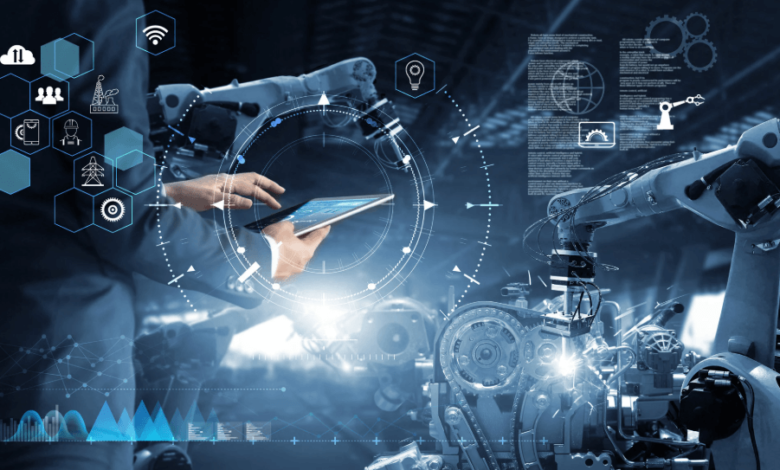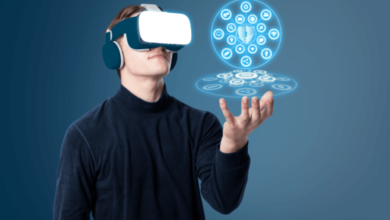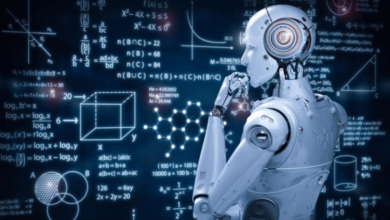The Future of Technology: Trends Transforming 2025 and Beyond

Technology is evolving at a rapid pace, shaping industries, lifestyles, and economies worldwide. In 2025, emerging tech trends such as Artificial Intelligence (AI), 5G, Blockchain, the Internet of Things (IoT), and Green Technology are redefining innovation, even streamlining global financial exchanges like PLN to BTC conversions. Businesses, governments, and individuals must embrace these advancements to stay competitive in the digital era. This article explores the top technology trends of 2025, their benefits, and their long-term impact on society.
Artificial Intelligence (AI): Smarter Solutions for Every Industry
Artificial Intelligence is no longer just a buzzword—it has become the backbone of digital transformation.
- Healthcare: AI assists in early disease detection, drug development, and robotic surgeries.
- Business: Companies rely on AI to automate processes, analyze large datasets, and enhance decision-making.
- Everyday life: AI chatbots, voice assistants, and smart home devices improve convenience.
The rise of Generative AI tools is also empowering creators, marketers, and developers to produce unique content faster. By 2030, AI could contribute trillions of dollars to the global economy.
Cloud Computing: The Digital Backbone
Cloud computing is the foundation of the modern digital ecosystem. It allows businesses to store, access, and manage data securely from anywhere in the world.
- Scalability: Organizations scale resources on demand without heavy infrastructure costs.
- Remote work: Cloud-based collaboration tools fuel global teamwork.
- Security: Major providers like AWS, Google Cloud, and Microsoft Azure offer advanced security features.
As businesses adopt hybrid and multi-cloud strategies, cloud computing remains essential for efficiency and innovation.
Internet of Things (IoT): Smarter Connections
The Internet of Things (IoT) connects billions of devices globally, making homes, workplaces, and cities smarter.
- Smart homes: Devices like thermostats, cameras, and appliances reduce costs and improve comfort.
- Healthcare wearables: Trackers monitor heart rates, sleep patterns, and activity levels in real time.
- Industrial IoT: Factories use IoT sensors to predict maintenance needs, preventing costly downtime.
In the future, smart cities powered by IoT will improve transportation, reduce pollution, and enhance energy efficiency.
Cybersecurity: Protecting the Digital World
As digital transformation grows, so do cybersecurity threats. Protecting sensitive information is more important than ever.
- Threats: Phishing attacks, ransomware, and identity theft are rising.
- Solutions: Companies invest in advanced firewalls, AI-powered threat detection, and biometric authentication.
- Consumer awareness: Individuals must also safeguard personal data through strong passwords and secure networks.
Cybersecurity will remain a top priority as businesses and governments fight to stay ahead of cybercriminals.
5G Technology: Faster and Smarter Connectivity
The global rollout of 5G networks is transforming communication and digital services.
- Ultra-fast internet: Enables high-quality video streaming, gaming, and browsing.
- Smart infrastructure: Supports self-driving cars, traffic management, and remote healthcare.
- Low latency: Essential for virtual reality (VR), augmented reality (AR), and immersive online experiences.
By enabling real-time data exchange, 5G will become the foundation of the next digital revolution.
Blockchain: Beyond Cryptocurrency
Blockchain is widely associated with Bitcoin and Ethereum, but its uses go far beyond digital currency.
- Finance: Blockchain supports decentralized finance (DeFi) and secure global payments.
- Supply chains: It tracks goods from origin to consumer, ensuring transparency.
- Healthcare: Blockchain secures patient records and prevents fraud.
With the growth of Web3 and NFTs, blockchain will continue shaping industries through decentralization and trust.
Green Technology: Innovation for Sustainability
As climate change becomes a global concern, green technology is driving sustainable innovation.
- Renewable energy: Solar and wind energy are becoming more efficient.
- Electric vehicles (EVs): Companies like Tesla and BYD are making clean transportation accessible.
- Smart grids: Manage energy use more effectively, reducing waste.
Green technology ensures that progress does not compromise the planet’s future, making sustainability a central tech trend.
Future Tech to Watch
Several breakthrough innovations are expected to shape the next decade:
- Quantum computing: Solves problems beyond the capabilities of traditional computers.
- Metaverse platforms: Create immersive environments for gaming, work, and education.
- Biotechnology: Gene editing and advanced healthcare solutions promise longer, healthier lives.
- Artificial General Intelligence (AGI): Future AI systems may achieve human-level intelligence.
These emerging technologies will create new opportunities but also raise ethical and security challenges.
Conclusion
Technology in 2025 is not just about convenience—it is about revolutionizing industries, economies, and daily life. From AI and IoT to 5G and blockchain, advancements are driving efficiency, connectivity, and innovation. At the same time, cybersecurity and green technology remind us of the need for safety and sustainability.
The future belongs to those who embrace technology while balancing responsibility. By adopting these trends, businesses and individuals can thrive in a world where innovation and sustainability go hand in hand.



